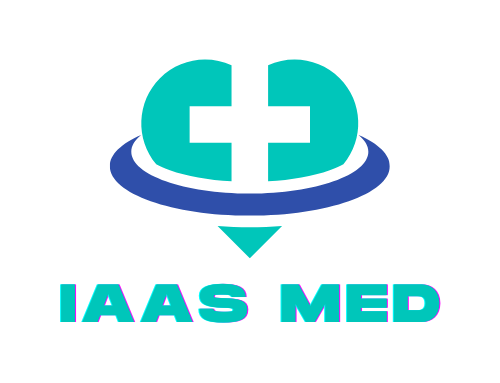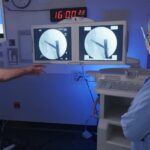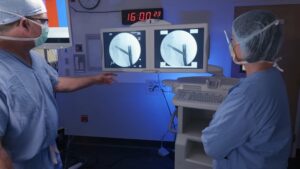An MSN after earning an ADN brings clear career benefits. It positions you for advanced roles such as Nurse Practitioner, Nurse Administrator, or Nurse Anesthetist.
With an MSN, you gain the authority to make independent decisions in patient care, manage healthcare teams, and take on leadership roles that focus on improving outcomes.
The demand for nurses with this level of expertise also leads to better job stability and higher pay. An MSN equips you with both the knowledge and credentials to pursue these opportunities.
Advanced Clinical Roles
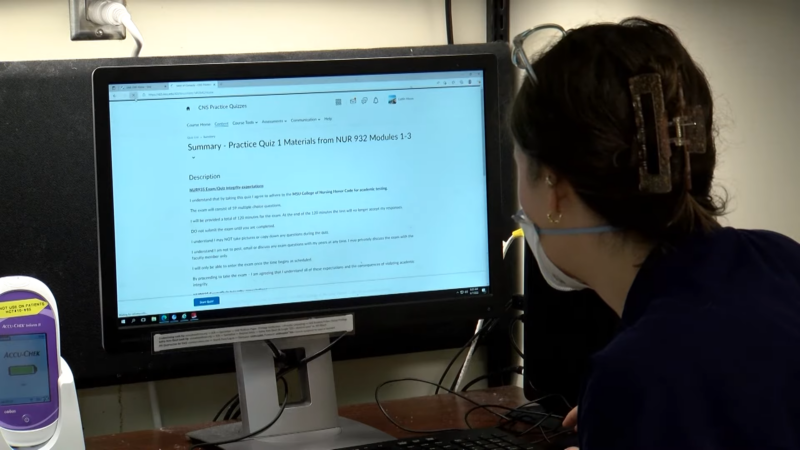
An MSN opens the door to more advanced clinical roles that come with greater responsibility and decision-making power.
Positions like Nurse Practitioner, Nurse Anesthetist, and Clinical Nurse Specialist allow you to work more independently, diagnosing and treating patients on your own.
In many states, Nurse Practitioners can practice without the need for physician supervision, giving them a significant role in primary care.
Specialized Training and Autonomy
MSN programs offer specialized training that prepares nurses for complex and high-stakes healthcare situations.
For example, Certified Nurse Anesthetists provide anesthesia care during surgical procedures, while Nurse Practitioners often manage long-term care for patients with chronic illnesses.
The University of Findlay in Findlay, Ohio, offers programs designed to train nurses for these roles by providing the hands-on experience and knowledge needed to manage patient care independently. You should learn more about the programs available at that college.
Expanded Scope of Practice
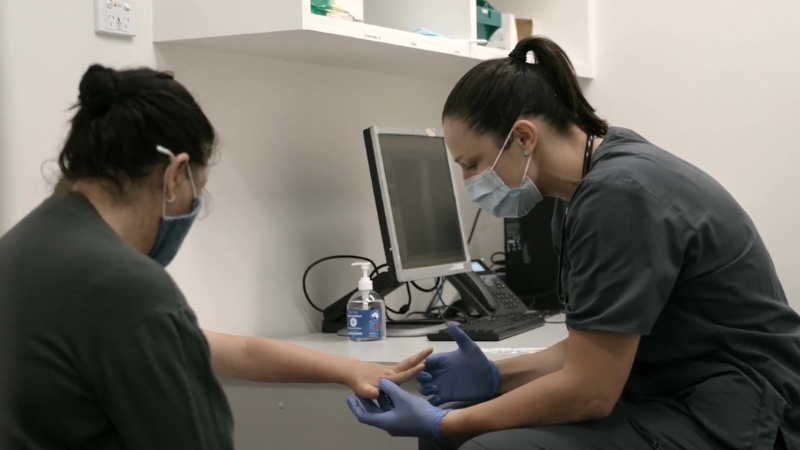
Advanced clinical roles also come with an expanded scope of practice. As a Nurse Practitioner or Clinical Nurse Specialist, you can perform tasks such as prescribing medications, conducting physical exams, and ordering diagnostic tests.
In many settings, these responsibilities give you the ability to lead patient care efforts.
Increased Career Flexibility
Advanced roles provide greater career flexibility, allowing you to work in a variety of settings. From hospitals and private practices to specialized clinics, an MSN equips you with the skills to adapt to different environments.
Leadership and Management Opportunities
An MSN opens up key roles in leadership and management within healthcare. Nurses with this degree gain access to advanced positions where they oversee departments, manage teams, and shape the future of healthcare operations.
- Administrative Roles in Healthcare: Roles like Nurse Manager, Department Director, and Chief Nursing Officer become available with an MSN. You will be responsible for guiding staff, creating operational plans, and improving patient outcomes.
- Strategic Leadership Skills: MSN programs often include leadership training that equips you with the skills to manage resources, direct nursing staff, and implement effective healthcare strategies.
- Influence on Policy and Decision-Making: Nurses in leadership positions have a direct role in shaping healthcare policies. Your input influences patient care standards, operational protocols, and overall healthcare efficiency. As an MSN-prepared nurse, you can advocate for changes that improve safety and care quality.
- Opportunities for Long-Term Growth: Leadership positions provide not only immediate career advancement but also potential for long-term growth. As the healthcare field continues to evolve, MSN-prepared leaders are positioned to take on executive roles, contributing to system-wide improvements and adapting to future changes in healthcare.
Increased Earning Potential

An MSN offers a clear financial advantage over an ADN, with significant increases in salary and job opportunities. Advanced roles come with more responsibility and specialized skills, which are reflected in the higher pay.
Higher Salaries for Advanced Roles
Nurses with an MSN often earn much higher salaries than those with an ADN. For example:
- Nurse Practitioners (NPs) earn a median salary of $121,610 per year, and in certain states like California, that figure can climb as high as $150,760.
- Certified Nurse Midwives (CNMs) see median earnings of $120,880 annually, with top salaries reaching up to $142,750 in states like Minnesota.
- Nurse Anesthetists (CRNAs) are among the highest-paid, earning a median salary of $203,090, with job growth projected to increase 9% by 2032. This specialization requires advanced training but offers the highest compensation among nursing careers.
Location Also Plays a Role
- Nurses in California earn an average of $150,760 annually, while those in Alaska make $138,220.
- Minnesota nurses can expect earnings of around $142,750, with New York salaries reaching approximately $131,770.
Average MSN Salaries by State
State
Average Salary (Annual)
California
$150,760
Alaska
$138,220
Minnesota
$142,750
New York
$131,770
North Carolina
$118,330
Ohio
$112,560
Additional Certification
MSN graduates can further increase their earnings by pursuing specialized certifications in fields such as acute care or psychiatric nursing.
Long-Term Job Security
The Bureau of Labor Statistics projects a 45% growth in roles such as Nurse Practitioners from 2022 to 2032, significantly higher than the 7% growth rate for Registered Nurses with lower qualifications.
Opportunities in Education and Research

An MSN provides pathways into education and research, offering fulfilling roles where nurses can shape the future of healthcare. These positions allow you to use your clinical experience to educate others or drive healthcare advancements through research.
Nurse Educator Roles
- Teaching and Mentorship: Nurse educators design curricula, teach both in classroom settings and through clinical practice, and mentor the next generation of nurses. Educators are responsible for ensuring that students are well-prepared to meet healthcare demands.
- Salary and Growth: Nurse educators earn an average of $82,770 per year. The demand for this role is expected to grow by 18% through 2032 due to the increasing need for skilled nursing professionals.
Research Nurse Roles
- Data Collection and Analysis: Research nurses focus on gathering data, participating in clinical trials, and analyzing results that can improve patient care. Research roles offer a balance of clinical work and healthcare innovation.
- Salary: Research nurses earn an average annual salary of $74,420, with opportunities to grow into leadership positions within research teams.
Academic Leadership Opportunities
- Program Development: MSN graduates in academic leadership create nursing programs, oversee their execution, and ensure that educational standards meet the needs of modern healthcare.
- Policy Influence: Leaders in this role have the power to shape nursing education policies and influence the direction of nursing training across institutions.
Increased Demand for Nursing Instructors
- Addressing the Nursing Shortage: The growing need for healthcare workers has led to a demand for qualified nursing instructors. This role ensures that new nurses receive the necessary training to provide high-quality patient care, addressing the shortage in the workforce.
Average Salaries for Educational and Research Roles
Role
Average Salary (Annual)
Nurse Educator
$82,770
Research Nurse
$74,420
Academic Leader
Varies, up to $100,000+
Job Growth and Stability in Nursing
Healthcare systems are increasingly reliant on MSN-prepared nurses to meet the demands of a growing and aging population.
As baby boomers age and chronic conditions like diabetes and heart disease become more prevalent, nurses with advanced skills are needed to manage more complex patient care.
Long-Term Career Stability

- Specialized Knowledge: With an MSN, nurses gain specialized knowledge that increases job security. Specializations in areas like geriatrics, oncology, and mental health are in high demand, ensuring long-term employment options in diverse healthcare settings.
- Autonomy in Practice: MSN-trained nurses, especially Nurse Practitioners, enjoy greater autonomy in practice. Many states grant full practice authority, allowing these nurses to diagnose, treat, and prescribe independently. This autonomy enhances job stability as it enables nurses to take on more responsibilities traditionally held by physicians
Flexibility Across States
Certain states provide even greater job security and growth opportunities for MSN-prepared nurses. For example, in California, MSN nurses earn an average of $150,760, while Minnesota offers salaries of around $142,750.
FAQs
Prerequisites vary by program but typically include:
- An active RN license.
- Completion of an Associate Degree in Nursing (ADN).
- Some programs may require clinical experience (usually 1-2 years of RN work experience).
- Basic courses in anatomy, physiology, and other foundational nursing subjects may be required for programs that do not include them as part of the bridge.
Last Words
An MSN degree offers significant career advantages for nurses with an ADN. It opens doors to advanced clinical roles, leadership opportunities, higher earning potential, and specialized fields in education and research.
With strong job growth projections and increased autonomy, pursuing an MSN ensures long-term career stability and the chance to make a meaningful impact in healthcare.
Related Posts:
- What Is BDA Therapy and How Does It Enhance Child…
- Unlock Your Potential: 6 Steps to Start Your Career…
- Can You Keep Your Wisdom Teeth? Here’s What Dentists Say
- How Can You Tell If Your Pain is from the…
- Can Hernias Affect Your Back? 9 Key Facts to Know
- How to Choose the Right Healthcare Career Path - 17…
